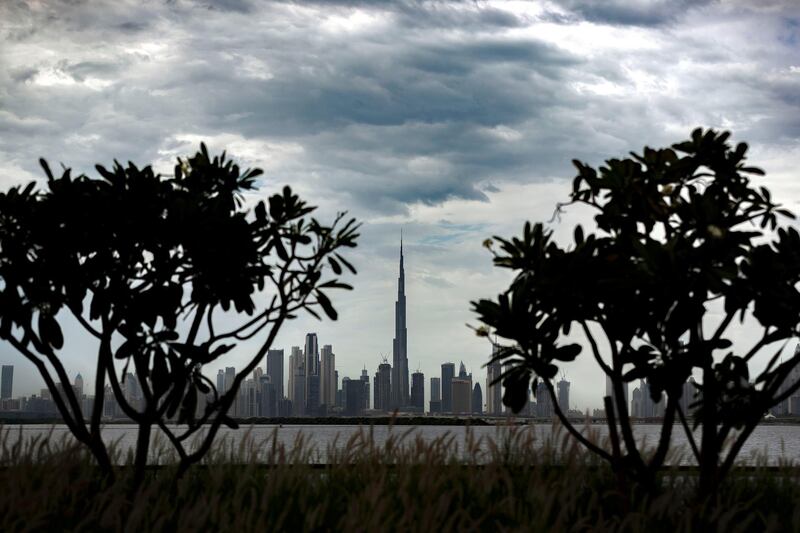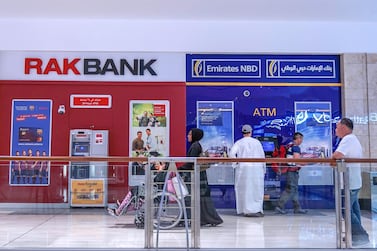Abu Dhabi and Dubai tenants struggling to pay their rent during the coronavirus pandemic are exempt from eviction after the government issued new directives to protect them.
Sheikh Maktoum bin Mohammed bin Rashid Al Maktoum, Deputy Ruler of Dubai and Chairman of the Dubai Judicial Council, temporarily suspended all eviction judgements related to residential and commercial facilities in the emirate during March and April, according to a Wednesday statement from the Dubai Media Office. The directive also stopped all "imprisonment judgements" linked to rental disputes. However, the ruling does not apply to abandoned homes.
"The generous gesture reflects the leadership’s humanitarian considerations at a time when people are facing challenges," the Dubai Media Office added.
On Tuesday, Sheikh Mohamed bin Zayed, Crown Prince of Abu Dhabi and Deputy Supreme Commander of the UAE Armed Forces, ordered the Abu Dhabi Judicial Department to halt all rental property eviction cases currently in process.
“The move is in line with the UAE government's keenness to support members of society and reduce their burdens during the current situation,” said the government statement carried by state-run news agency Wam.
While Sharjah Asset Management, the investment arm of the Sharjah Government, said on Sunday it would waive commercial rents for all tenants of Haraj and Jubil markets for three months, no measures have been announced for residential tenants in the emirate.
The situation "changes by the hour so it's best to keep a close eye on any developments and updates" said Wael El Tounsy, counsel and head of real-estate, dispute resolution department, at law firm Baker McKenzie Habib Al Mulla.
The UAE government is rolling out a series of measures to alleviate the financial burden on businesses and consumers as a result of the slowdown in activity caused by the Covid-19 pandemic.
The virus has now infected more than 390,000 people worldwide and killed 17,000, according to Johns Hopkins University, which is tracking global data on the outbreak. About 103,000 people have also recovered.
Some companies in the UAE have reduced the number of days their staff work or cut salaries to help counter the effects of a halt in operations during the stay-at-home directives from the government. This can in turn affect residents' ability to meet rental payments.
While landlords have a robust list of rights to protect them if a tenant cannot pay their rent, under rental laws facilitated by the Real Estate Regulatory Agency, "their priorities right now are to the well-being and safeguarding of tenants", the Dubai Land Department told The National on Tuesday.
No case has been filed as a direct result of the virus, the Dubai Land Department, said.
“This is an exceptional situation that we are witnessing … We are confident of the moral standards of landlords in Dubai who are working closely with the authorities under the guidance of the wise leadership to make sure residents feel safe in their homes and that their mental and physical well-being are being prioritised,” the DLD said.
Real estate agents confirmed that landlords are already being flexible with tenants struggling financially.
Nick Grassick, managing director of PH Real Estate in Dubai said its property management team is "experiencing the polar opposite of tenants being concerned", as it helps renters secure a payment hiatus for the short term, and "much more lenient payment terms and conditions for new leases".
The “overwhelming sentiment” from landlords managed by the company is “one of empathy and support to tenants plight” he added. “It’s genuinely encouraging to see commercial decisions and interest being considered secondary to humanitarian concern.”
Meanwhile, developers in the UAE are offering more favourable terms for their residential clients. Last week, Abu Dhabi developer Aldar introduced a monthly payment plan option for the 5,000 tenants in its communities and said it would waive all transaction fees and penalties for 2020.
The property developer said it is also co-ordinating closely with major Abu Dhabi financial institutions to offer attractive and subsidised financing solutions to existing customers and new homeowners to ease upcoming and final payments. It will also waive all administrative fees associated with transactions with Aldar, including service charges, transfer fees and late payment fees applicable during 2020.
In Dubai, developer Nakheel said residential and commercial customers will receive a 10 per cent discount on cooling charges for three months, as per government directives.
"Other initiatives are under discussion," a Nakheel spokeswoman told The National.
For owners struggling to pay mortgages due to unpaid rent, banks are being more flexible on mortgage payments, said Dhiren Gupta of 4C Mortgage Consultancy.
“For mortgages, banks are offering a one-month grace period which can further be extended based on your economic conditions and your past record with the bank,” he said.
Lenders are also negotiating reductions in interest rates, according to Brendan Kennelly, senior mortgage consultant at mortgagefinder.ae, depending on the rate the customer is currently on.
"They are also extending the length of mortgage terms to reduce the monthly repayments. The banks appear to be more open to restructuring customers' mortgages at this time,” Mr Kennelly added.









